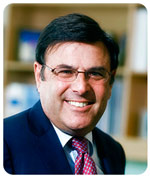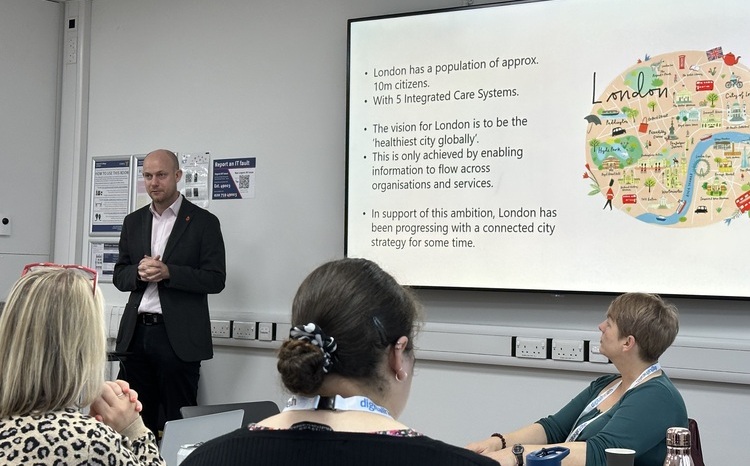IBA boss says corner turned on iSoft
- 13 May 2008
 |
Six months after his company bought iSoft, IBA Chairman Gary Cohen appears relaxed and is speaking confidently about the corner having been turned.
Speaking to E-health Insider at Healthcare Computing three weeks ago Cohen said “We’ve done a lot in a very short period”.
The Australian iSoft boss claims that in six months confidence has been restored; partnerships with key customers solidified; and delivery on Lorenzo is claimed to be set fair. But on the essential question of delivery to the NHS specific questions about delivery dates are still met with regretful shrugs, citing contractual requirements and commercial confidentiality.
He runs through a list of ticks that includes: “integration of the two companies”, “on track to achieve £13m (Au$27m) savings by the end of June”, integration of the corporate structure including closure of the Hyderabad facility in India, “rationalising our operations in Australia, New Zeeland and Singapore”.
New iSoft senior team
There have also been some key appointments, most notably that of Andrea Fiumicelli, previously chief operating officer of Agfa Health, as iSoft’s new COO, and the imminent appointment of a new financial director. E-Health Insider understands a further top level appointment may also be due shortly.
The team is now in place Cohen told EHI: “The existing iSoft team together with the IBA were a very solid group of people and now we’ve brought in fresh blood as well.” Out of a combined staff of 3,500 he says about 100 have so far gone as a result of the merger.
Of existing iSoft senior managers Cohen says “Many of the people had fantastic leadership qualities but had not been allowed to flourish, as the company chopped about.”
Getting product strategy right
The other key area to receive attention over the past six months, says Cohen, is getting the product strategy right. IBA has adopted Lorenzo as the strategic product across the Group. “You will see us moving ahead with the roll-out of Lorenzo product strategy in a way that makes people sit up,” Cohen predicted.
As part of getting the product development right, the company’s chief technology officer Brian Cohen, brother of the chairman, is now based in iSoft’s main Chennai facility that has been developing Lorenzo.
Re-establishment of confidence with CSC
Cohen says there has been a major work programme with CSC and CfH “to show people can see the release of the product.” Cohen says that the work carried out over the past six months has enabled “the re-establishment of the confidence with CSC and CfH over the areas they are keen to achieve.”
He admits that before taking over the helm at iSoft he made grave concerns at what he would find. “I was terrified of where the delivery programme was and where the relationship with CSC was.” But he says such fears have proved baseless and past bad blood been cleared.
“To the credit of CfH and CSC that they have worked alongside us to make sure there is a triumvirate relationship in a way that is seen to be symbiotic.” Cohen says that part of rebuilding trust now means iSoft is once again involved in collaborative decision-making, making outcomes much more achievable.
Going beyond contractual requirements
At times he says this has meant having to go beyond what was set out in the NPfIT contracts. “We decided we needed to do our part to make this successful, and we realised this might be more than the contractual relationships might say.”
Cohen added: “We have worked very hard with CSC on ensuring they can be successful and deliver the goals of the programme.”
The IBA chairman says that the changes have been made possible because under the new management of the past six months iSoft has now started to deliver, and “both CSC and CfH have acknowledged that”.
One indicator of this new spirit of delivery, Cohen cites is iSoft’s i-series team – responsible for the current iPM and iCM products so far being delivered to the NHS – recently winning as CSC “team of the year” award. “What is evidenced is that we have demonstrated that we are very good partners with CSC Alliance,” says Cohen
Unfortunately other aspects of the relationship – including specifics on delivery of Lorenzo within the NHS – still hold from the previous regime. Asked when the three initial NHS Lorenzo deployments will go live Cohen declined to be drawn, citing confidentiality clauses in the contract with CSC.
Cohen says ‘no major issues’ delaying Lorenzo
Cohen says that the work on implementations is proceeding to the undisclosed schedule, previously said by CfH and the DH to be this summer, without any show stoppers. “There is a jointly agreed strategy to go live. I’m not aware of any major issues to delay this, nobody is alerting us.”
He adds that if there are outstanding issues they will be fixed in time. “Whatever software issues exist I think they will be dealt with in the timeframes agreed.”
The IBA chairman says that the question of if Lorenzo will be delivered has been removed. “No longer is it will this be happening. It is happening.”
iSoft, he says, are making huge efforts to ensure successful delivery. “We are going out of our way to make sure CSC and CfH are successful.”
Take-up of Lorenzo to accelerate in 2009
EHI asked Cohen how he thinks the picture will look in another 12 months. He paints a picture of a bright near future following the successful delivery of the initial Lorenzo pilot sites. He says take-up of the application will begin to really accelerate in 2009. “I think the emphasis will be away from asking ‘is there a real product and can they deliver?’ to this is a real product. Wow, this is a different way of delivering healthcare.”
Cohen says that the Penfield four-stage delivery plan will continue, with the second release due by the end of 2008, but downplays its importance suggesting NHS organisations will want to mix and match.
“Some hospitals take some elements and some others. It is a bit plug and play. It is where it all starts to turn around and that’s where the excitement will be.”
NHS to be international springboard
The NHS he acknowledges remains a huge challenge, but successful delivery of Lorenzo will provide a springboard for accelerated international growth. “We’re already having a lot of interest from countries such as Russia and China.”
The Australian IBA chairman clearly has big international plans, pitching IBA as the future health IT leader for socialised healthcare systems. But any ambitious march to Moscow or Shanghai will first depend on successful delivery over the next couple of months in South Birmingham, Morecombe Bay, Bradford and Nottingham.




